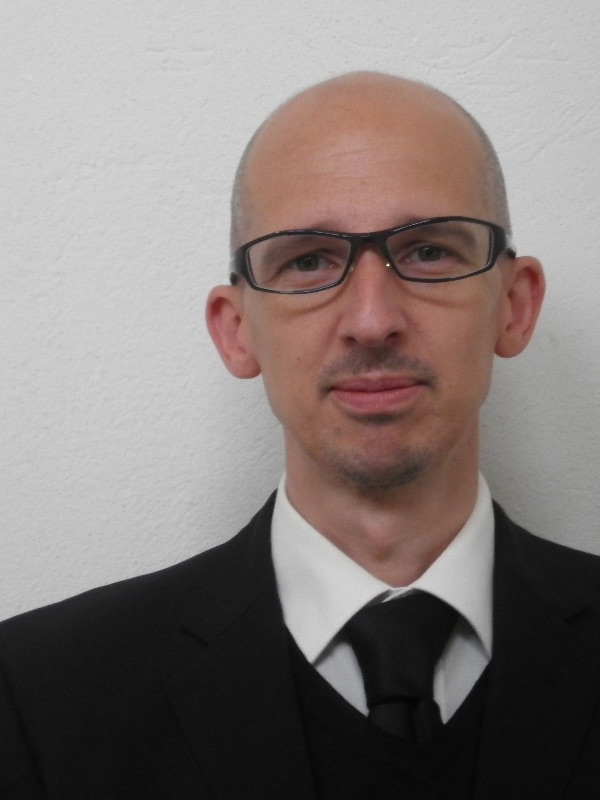Date: February 3 & 4, 2020
Venue:
Université libre de Bruxelles
Address: 1, avenue Antoine Depage, 1050 Bruxelles
Building: Maison des Sciences Humaines de l'ULB
Room: Bâtiment R52 (2ème niveau)
The variety and intensity of insults and denigration in politics, society, and culture currently seem to have a global boom phase. Donald Trump's "insult politics" (Winberg 2017), the new wave of right-wing populism with its attacks on ethnic or religious minorities, and the often aggressive debate culture in social media are just a few examples of phenomena, which have brought the significance of denigration as a ubiquitous dimension of communication into public awareness. Public discourse on the issue of discriminatory and insulting speech is mainly concerned with the question, how to avoid derogatory language usages, how to contain its negative effects and how to find legal means to defend the right to human dignity against linguistic violence without significantly restricting the freedom of speech. This is a legitimate approach and even a necessity in times where pejorative and discriminatory practices seem at vogue, in which hate speech has found large resonance chambers within the social media and the forming of public opinion is threatened by a intimidating and divisive debate culture.
Yet, even though the level of aggression, the types of invective practices, and the number of symbolic forms to express contempt or denigration significantly varies between societies, it is hard to imagine that there was a historical era without verbal aggression. Thus, in order to understand the way, invective communication functions, it is not sufficient to view it as a deviant form or even a misuse of communication. As with every act of communication, we not just make statements about the world but also position ourselves and others in the social space and rely on the ratification of our positioning practices through others, our social position is always at stake and a possible target of acts, we or others might perceive as degrading. We therefore believe that conceptualizing invectivity as a ubiquitous and potent mode of interaction and communication will enable us to gain a more precise understanding of the conflictual nature of the social sphere. This also applies to societies as a whole: as much as the toxic dimensions of derogatory speech needs to be recognized, it is also clear, that conflicts and disputes are an integral part of democratic societies.
In order to cover a wide range of phenomena, we define our object of study in a rather broad sense. Invectivity is defined, first, as a process of evaluating and labeling people (a person or a group) by means of verbal and/or non-verbal acts of communication be they oral or written, gestic or mimic, visual or pictorial. Secondly, these labeling processes have the potential to affect the social position of a person or a group in a negative way, to discriminate against them or even to expel them from community or even from society. Thirdly, the derogatory consequence depends on context and on the kinds of follow-up communication. Invectivity becomes visible – ideally speaking – within a triangulated constellation. The corner points of this triangle represent those who utter invectives, those who receive invectives and an audience that represents a relevant public sphere. But the point is, as a matter of fact, that there is no such thing as a persistent position within this triad. On the contrary, every position is not only related to numerous other positions but all positions can constantly move within the triad depending on the dynamics of communication processes. Thus, invectives unfold their quality as well as their capacity only in complex social settings and through reflective communication. Every day interaction and communication as well as the sociopolitical sphere are shaped by ongoing negotiations and latent conflicts or even quarrels as to whether specific invectives are present or absent in a given situation. Furthermore, their intensity and direction are also contested. As a consequence, already invective practices themselves reflect invectivity, which means that empirical observation does not only begin with academic research but basically constitutes invective social practice itself. To reflect, to denote and to label certain speech acts as invectives may also be harnessed as a strategic resource in conflict situations. To stress this point, we define such acts as meta-invective.
This workshop will take its starting point from the observation, that invective communication is a universal mode of interaction and as such should be viewed as a fundamental manifestation of the social. By conceptualizing invective communication as a core force in the stabilization and dynamization of cultural and social orders and by shifting the large and heterogeneous field of relevant phenomena under the over-arching umbrella of the terminological artifact "invectivity" the workshop aims at analyzing the role of invective practices …
February 3, 2020
09.15-09.30 Welcome & Introduction
09.30-10.45 Joachim Scharloth: On the concept of invecticity and related terms
Coffee Break
11.15-12.30 Silvia Bonacchi: Vulnerability, mimetic violence, and insults against women
Lunch Break
14.00-15.15 Steven Trenson: The Quest for Truth and Invective Behavior in a Medieval Japanese Buddhist Context: Original Enlightenment Thought as a Form of Postmodern Relativism
Coffee Break
15.30-16.45 Andrew Whitehead: Piss on the Buddha, Kill Your Parents, Find Enlightenment in Your Underpants: When Foul-Mouthed Frogs Jump in the Pond
16.45-18.00 Konstanze Marx: The case of reversible reinterpretation in invective contexts
February 4, 2020
09.15-10.30 Derya Gür-Seker: Invective communication in right-wing populist speeches. A multimodal linguistic analysis of YouTube videos in Germany
Coffee Break
10.30-11.45 Xavier Mellet: Invective communication in contemporary French politics: the populist reason in time of distrust
Silvia Bonacchi: Vulnerability, mimetic violence, and insults against women
 |
Silvia Bonacchi is a professor of German studies and Intercultural Communication at the University of Warsaw, Faculty of Applied Linguistics, Institute of Specialised and Intercultural Communication (ISIC), deputy director for Science and Organisation. Her research interests cover pragmalinguistics, intercultural communication studies, multimodal communication; her main research fields are politeness, impoliteness and verbal aggression, multilingualism, multiculturalism and new speakers, history of thought and Gestalt Theory in language. |
| Women − often successful and powerful women, such as prominent female politicians − are increasingly the target of verbal violence and insults, which are amplified in an echoic way by social media. The shared mechanism of offense makes the target a victim of a staged “sacrifice”, one in which the victim becomes a substitute target for a gamut of embodied processes, a scapegoat through whose sacrifice the community finds a sense of unity. According to Girard’s theory of mimetic violence (Girard 1972 and 1982), the scapegoat is chosen from among the possible victims in order to channel micro-conflicts that threaten the subsistence of the group, allowing the latter to get out of a cycle of “mimetic desire” and “mimetic violence”: the microdiffused violence can focus on a single arbitrary victim, around which the group gathers to perform the sacrificial rite. Of particular interest are the criteria for the selection of the victim, who is often the bearer of a difference, the “Other” who has no particular reason to attract the lightning of the violent, except that of being vulnerable. It is the elimination (expulsion, rejection, or killing) of the victim/Other that allows the violence to be channelled and the group to be saved. Women are therefore predestined targets for mimetic violence. On the basis of two case studies of verbal violence against Italian female politicians in 2014 (the first case Grillo-Boldrini being a sexual offense against an attractive female politician, the second case Calderoli-Kyenge featuring an animalising offence against a black female politician), I will try to show that there is a close and direct relationship between verbal violence against women, embodiment mechanisms, and group dynamics. I will try to shed light on how offensive language, when it is translated into embodied projective patterns and mechanisms, leads to relapses in social and identity terms. In the above-mentioned imagined collective rape and in the staged rite of animalisation, the male community tries to enhance an otherwise weak feeling of self-esteem and belonging. In this sense, it is not catharsy the key mechanism of (verbal) group violence, but embodied community devices. |
Derya Gür-Şeker: Invective communication in right-wing populist speeches. A multimodal linguistic analysis of YouTube videos in Germany
 |
Derya Gür-Şeker, PhD has studied German Linguistics, German Literature, Media Studies and Political Sciences in Düsseldorf and Reading (UK). She is a Postdoctoral Researcher at the Department of German Linguistics at the University of Duisburg-Essen (Germany). Her research interests are focusing on language in media and politics. |
| The aim of the presentation is to work out invective communication and their function for community building in German right-wing populist speeches. One focus of the analysis lies particularly on audience reactions. Transcribed speeches that have been published on YouTube are used as a basis for analysis. |
Konstanze Marx: The case of reversible reinterpretation in invective contexts
 |
Konstanze Marx is Professor of German Linguistics at the University of Greifswald. She received her doctorate with a neurolinguistic thesis on text comprehension at the Friedrich Schiller University in Jena and her habilitation with a thesis on the discourse phenomenon of cyberbullying at the Technical University in Berlin. She then worked as a professor of German linguistics at the Pragmatics Department of the Leibniz Institute for the German Language in Mannheim and at the University of Mannheim. Her main research focus lies in Internet linguistics, discourse and text linguistics, research on the connection between language-cognition-emotion, gender linguistics and media linguistic prevention. |
| Are reinterpretation processes reversible? That’s the main question of my talk. Reinterpretation processes can be observed in every day social media interaction. They are mostly initiated by right-wing populist accounts. Such processes have been called semantic struggles in linguistic research. They are central elements in invective contexts. But is it possible to re-adopt concepts that have been “annexed” from right-wing (populist) positions by using them from a left-wing position? This question is motivated by an investigation of the online discourse of the “Identitären” (Bendl/Spitzmüller 2017). They found, that highly consensual values are adopted in order to make its own demands capable of consensus. Typical values are issues where there is a high level of social consensus, for instance the idea of preserving cultural treasures. Can such a reinterpretation strategy also be reversed and made fruitful as a discourse intervention strategy? I will answer this question with the help of an example: the statements by the former handball professional Stefan Kretzschmar. In an interview, the sportsman had used right-wing populist topoi, although he positions himself as a left-wing civilian. |
Xavier Mellet: Invective communication in contemporary French politics: the populist reason in time of distrust
 |
Xavier Mellet is Assistant Professor at Waseda University (School of International Liberal Studies). He holds a Ph.D in political science from SciencesPo Paris. His research focuses on French and Japanese domestic politics, populism and comparative politics. |
| The concept of populism has become a key-notion to analyze contemporary French politics. The three last presidential election campaigns (2007, 2012 and 2017) have illustrated in many ways what the political scientist Ernesto Laclau defined as a "populist reason" (2007), consisting in a discursive process in which a unified people emerge in the public space from "empty signifiers". In a time of high popular distrust in political representation, those signifiers often take the form of negative labializations targeting elitist enemies. Since the 2007 election, it appears that all the main candidates have used various modalities of anti-elitist rhetoric to talk to the people and catch voters. This presentation aims at establishing how the French political context may help in analyzing the empirical connections between political distrust, populism and negative messages. |
Joachim Scharloth: On the concept of invecticity and related terms
 |
Joachim Scharloth is Professor of German Studies in the School of International Liberal Studies at Waseda University. His main research areas are sociolinguistics, pragmatics and corpus linguistics. His research covers a wide range of topics, such as language in politics, communication of social movements, invective communication, language learning, and developing innovative methods for computational analysis of bulk linguistic data. |
| In my talk, I will revisit a number of approaches to theorize harmful and violent language. I will make three points of comparison: Are insults and denigration modelled as an integral part of communication or an exceptional case? How are the roots of the invective force conceptualized? Which social functions does the theory assign to invective communication? If you do not like my presentation, you are probably dumb. |
Steven Trenson: The Quest for Truth and Invective Behavior in a Medieval Japanese Buddhist Context: Original Enlightenment Thought as a Form of Postmodern Relativism
 |
Steven Trenson is Associate Professor in the Faculty of International Research and Education of Waseda University. His research focuses on the history of esoteric Buddhism (mikkyō) in medieval Japan. In particular, he examines the historical development of Shingon Buddhist doctrine and practice from the point of view of relic veneration and related beliefs, and investigates the impact of those beliefs on the development of some key areas of medieval Japanese religion. Some of the areas studied are the interaction between Buddhism and Shinto and Buddhist discourses on divine kingship. He has published a number of articles on relic cults, including a Japanese book entitled Kiu, hōju, ryū: Chūsei Shingon mikkyō no shinsō (Kyoto Daigaku Gakujutsu Shuppankai, 2016), and is currently working on a study of the ‘Buddha-Mother’ (butsumo) in medieval Shingon Buddhism. |
| Buddhism is generally described as a religious system which preaches the importance of ending strife and conflict, both internally and externally, to realize tranquility of mind (Nirvāna) as well as peace among all human beings. Additionally, Buddhism is also often presented as a philosophical enterprise engaging on the heroic path of seeking the ultimate truth. Ideally, this quest for truth should overall be a peaceful one, but it is a fact, however, that the history of Buddhism is marked by a few outbursts of discriminatory criticisms among Buddhists related to the question of what Buddhist truth is or should be. The present paper will focus on some salient examples of invective or near-invective behavior in medieval Japanese Buddhism, and by looking closer into the socio-historical background of these examples try to shed more light on the question of why such behavior emerged. In this attempt, emphasis will be placed on medieval Japanese Original Enlightenment thought (hongaku shisō), and by drawing a parallel with postmodern relativism illustrate how that Buddhist thought, due to its increased proliferation in medieval Japanese religious discourse, stimulated the eruption of invectives. |
Andrew Whitehead: Piss on the Buddha, Kill Your Parents, Find Enlightenment in Your Underpants: When Foul-Mouthed Frogs Jump in the Pond
 |
Andrew K. Whitehead is presently Associate Professor of Philosophy at Kennesaw State University in the United States. He specializes in East-West comparative philosophy, particularly concerning Japanese philosophies, Chinese philosophies, and the German and French traditions of phenomenology and existentialism. He is the President of the Académie du Midi Philosophical Association, an Associate Editor of the journal Comparative and Continental Philosophy, an Executive Officer of the Comparative and Continental Philosophy Circle, and a Guest Professor for the Higher Institute of Philosophy (HIW) at KU Leuven in Belgium. He has co-edited several books, including Wisdom and Philosophy: Contemporary and Comparative Approaches (2016), Imagination: Cross-Cultural Philosophical Analyses (2018), and the forthcoming Critique, Subversion, and Chinese Philosophy: Socio-Political, Conceptual, and Methodological Challenges (2020), all of which are published by Bloomsbury Academic. |
| I examine the role of invective communication in Zen Buddhism, with a focus on so-called “crazy-monks,” including Ōbaku, Rinzai, and Ikkyū. I contend that the insulting behavior of these monks is best understood in accordance with the bodhisattva precepts and the Buddhist practice of expedient means. Understood in this way, it becomes clear how such communications work towards the establishment of distinct practice-based communities, serve as novel showings of the radical correlational interdependence of the phenomenal realm, and even work to undermine those very conventions by which they are deemed invective to begin with. |
Xavier Mellet ➚
Political Science, Waseda University, School of International Liberal Studies
Joachim Scharloth ➚
German Linguistics, Waseda University, School of International Liberal Studies
Steven Trenson ➚
Buddhist studies, Waseda University, School of International Liberal Studies
If you wish to participate in the conference, please get in touch with Joachim Scharloth via:
invectivity@scharloth.com
Generously Supported by